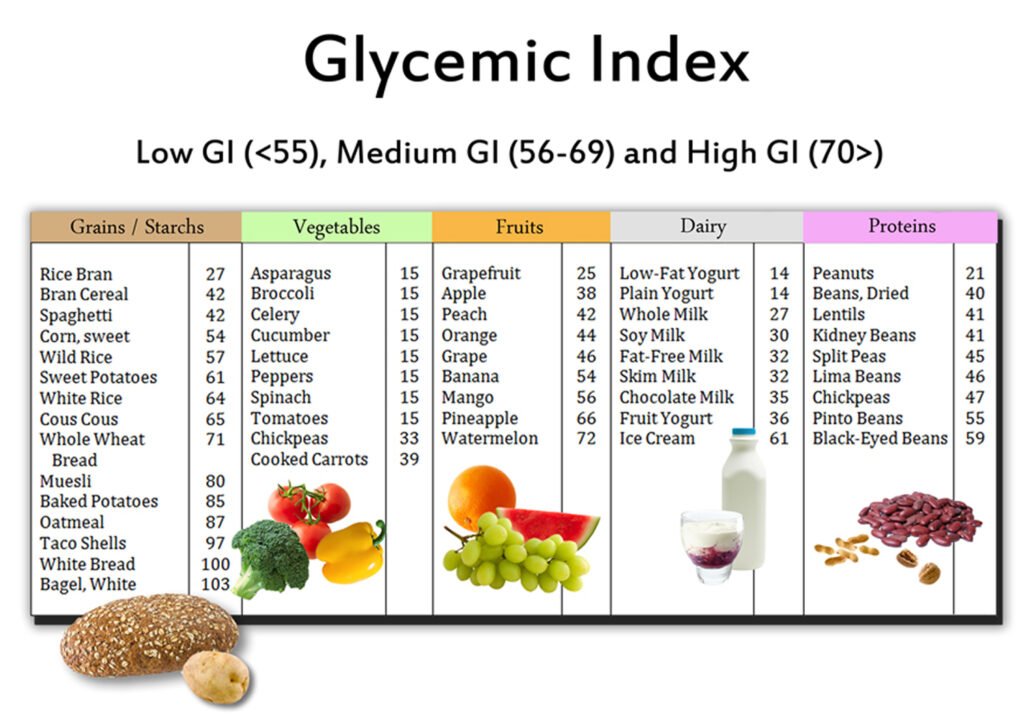Introduction
Blood Sugar Control – the one key aspect that deserves our attention in our fast-paced lives. The older we get and with all the daily hectic lives we all live, health often takes a back seat, and maintaining optimal well-being becomes a challenge. This seemingly routine task of ensuring your blood sugar levels remain balanced plays a critical role in achieving and sustaining optimal health.
Let’s delve into the reasons why controlling blood sugar is not just important but vital for our overall well-being.
6 Important Reasons
1. Regulation of Energy Levels:
Maintaining stable blood sugar levels is akin to providing your body with a consistent fuel supply. Glucose, derived from the carbohydrates we consume, serves as the primary energy source for our cells. When blood sugar levels spike after consuming high-sugar or refined-carbohydrate foods, the body responds by releasing insulin to usher glucose into cells for energy. However, this process can result in a rapid drop in blood sugar levels afterward, leading to fatigue and irritability—the infamous “sugar crash.”
To achieve sustained energy levels, opt for complex carbohydrates like whole grains, fruits, and vegetables that release glucose gradually, preventing sharp spikes and crashes. Balanced meals, including a mix of carbohydrates, proteins, and healthy fats, contribute to lasting energy throughout the day. This stability in energy not only improves daily productivity but also supports overall mood and well-being.

2. Weight Management:
The relationship between blood sugar levels and weight management is intricate and profound. Elevated blood sugar prompts the pancreas to release more insulin, a hormone that facilitates the storage of excess glucose as fat. Moreover, imbalances in blood sugar can trigger cravings, especially for sugary snacks, leading to overconsumption of calories and, consequently, weight gain.
Choosing foods with a low glycemic index (GI) can aid in weight management by preventing rapid spikes in blood sugar. Low-GI foods, such as legumes, whole grains, and non-starchy vegetables, are digested more slowly, promoting a gradual rise in blood sugar levels. This measured approach helps control appetite and reduces the likelihood of overeating, fostering a healthy and sustainable approach to weight management.

3. Prevention of Type 2 Diabetes:
Type 2 diabetes is characterized by insulin resistance, where the body’s cells become less responsive to insulin, resulting in elevated blood sugar levels. Chronic high blood sugar levels contribute to the development of insulin resistance, making it crucial to address and manage blood sugar to prevent the onset of this metabolic disorder.
A balanced diet, rich in fibre, and regular physical activity play pivotal roles in preventing type 2 diabetes. Fibre slows the absorption of glucose, promoting stable blood sugar levels. Regular exercise enhances insulin sensitivity, allowing cells to more effectively respond to insulin. By adopting these lifestyle changes, individuals can significantly reduce their risk of developing type 2 diabetes, ensuring long-term health and well-being.

4. Cardiovascular Health:
Uncontrolled blood sugar levels can have far-reaching consequences for cardiovascular health. High blood sugar contributes to inflammation and oxidative stress, factors that play a significant role in the development of heart disease. Moreover, elevated blood sugar levels can lead to the accumulation of plaque in the arteries, narrowing them and increasing the risk of heart attacks and strokes.
Prioritizing a heart-healthy lifestyle, including a diet rich in fruits, vegetables, and lean proteins, can positively impact blood sugar and cardiovascular health. Omega-3 fatty acids, found in fatty fish like salmon and in supplements such as Amare’s OmMega, have been shown to support heart health by reducing inflammation and promoting optimal blood vessel function.

5. Brain Function and Mental Health:
The brain is highly dependent on a steady supply of glucose for optimal function. Fluctuations in blood sugar levels can affect cognitive processes, leading to difficulties in concentration, memory, and mood regulation. This is particularly evident during the “afternoon slump” when blood sugar levels may drop, contributing to feelings of lethargy and mental fog.
Choosing nutrient-dense, low-GI foods supports cognitive function by providing a sustained release of glucose to the brain. Additionally, incorporating foods rich in antioxidants, such as berries and dark leafy greens, can protect the brain from oxidative stress associated with high blood sugar levels. By prioritizing stable blood sugar through dietary choices, individuals can positively impact their mental clarity, focus, and overall mood.

6. Prevention of Complications:
Uncontrolled blood sugar levels can lead to various complications, including nerve damage, kidney problems, and vision impairment. Regular monitoring and control of blood sugar can significantly reduce the risk of these complications, promoting long-term health.
Recommended Products for Blood Sugar Control:
While lifestyle changes, including a balanced diet and regular exercise, are essential for blood sugar control, certain supplements can complement these efforts. Products like those from www.amare.com offer a range of solutions designed to support blood sugar regulation. Some recommended products include:
- Amare FundaMentals Pack: A comprehensive pack that includes products to support gut health, which is closely linked to blood sugar regulation.
- MentaBiotics: A targeted formula designed to promote a healthy microbiome, supporting overall well-being, including blood sugar balance.
- OmMega: Rich in omega-3 fatty acids, OmMega helps support cardiovascular health, an important aspect of blood sugar management.
Remember, it’s crucial to consult with healthcare professionals before incorporating new supplements into your routine, especially if you have pre-existing health conditions or are on medication.
In conclusion, the importance of controlling blood sugar cannot be overstated. It is a cornerstone of optimal health, influencing various aspects of our well-being. By understanding this connection and taking proactive steps, we can pave the way for a healthier, more vibrant life.
Stay Well everyone and don’t forget to grab your FREE Mental Wellness Guide